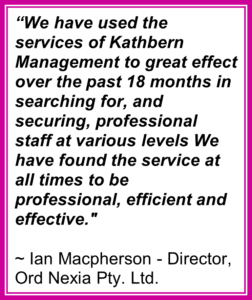(Reading Time: 6 minutes)
Six books to add to your reading list, or to gift to the CEO in your life
I love to read. Whether it’s for pleasure or to learn something new, I always have a book on the go, and a long to be read list.
Unfortunately, it’s not always easy to make time to read a print book in the traditional manner, and it takes me a long time to get through a book. Like many of you, I’m busy during the day, then when I get home and finally get through the newspaper, dinner, and this and that, it’s 10:30 and I can’t see straight.
And that’s when it’s time for my printed book, which takes me a very long time to work through, reading just 20 minutes at a time. But that doesn’t mean I have given up on reading—far from it. On average, I take in nearly 30 books a year. I have just changed how I read.
 Going audio
Going audio
These days, reading for me is more likely to be an act of listening. Listening to a book—while driving to work, to the cottage, or doing chores like gardening and shovelling snow—has allowed me to increase the rate at which I can take in a book. Anytime I’m doing something not too mentally taxing is the perfect opportunity for listening to another chapter in an audio book.
I’m now averaging about two books per month on audio, and I go back and forth between a fiction and a non-fiction title. I have a long wish list, so I can easily grab the next one and I’m ready to go. I can do 24 books a year on average on audio and probably do three or four in print because of the various times I can allocate to it.
I highly recommend you try it, if you haven’t already. You’ll even find that some authors and publishers are starting to create the audio versions of their books with the listener in mind—using the medium to enhance the listening experience so that it’s more engaging. Malcolm Gladwell’s latest book, The Bomber Mafia, is a great example of this.
What to read
There are lots of great reasons to read (or listen), whether it’s for entertainment, to get insight into history, or for professional development. But candidly, I’m often underwhelmed by business books.
Perhaps it’s because of my age or experience, but most of the time, the latest hit business book is just the same old thing. It’s nothing revolutionary. Or it’s so esoteric or general that nothing practical comes from it.
A good business book should give the reader (or listener) practical advice that can be applied in a wide range of situations and industries. It should be clear about how to assess a problem and then set out how to formulate a solution. It should provide practical, relatable examples.
So while I’ve read many, many books on business, I’m just not excited about reading too many more. I get a lot more out of reading other books, some of which are tangentially related to business.
Here are six that I recommend adding to your reading list this year—they also make great gifts for the CEO or future CEO in your life:
~ Never Split the Difference by Chris Voss
~ The Trial by Franz Kafka
~ The Coddling of the American Mind by Greg Lukianoff and Jonathan Haidt and The Parasitic Mind by Gad Saad
~ Red Roulette by Desmond Shum
~ The Fish that Ate the Whale by Rich Cohen
The book that everyone should read…and study:
Never Split the Difference
If you’re a regular reader of my blog, you’ll know that I’ve mentioned this book before. That’s because this is the book that everyone should read, and a model of what business books can and should be, even though the examples are from situations that aren’t necessarily everyday ones.
Author Chris Voss was the FBI’s lead international hostage negotiator, and he walks you through how to apply the tactics he used in life-or-death situations to your everyday negotiations. That could be negotiating a raise, a job offer, or a new contract.
It’s a combination of human psychology, strategy, timing, and economics, and how to use all those things to get closer and closer to the outcome that’s fair to you. I eventually bought the print version and read it a second time and made notes in it. It’s like a textbook of what to do; it’s that practical. If you’re like me, you’ll go back to it again and again.
The classic behind a metaphor:
The Trial
If you’ve ever wondered where the term Kafkaesque comes from, this book is your answer. It’s also highly entertaining, at times outrageously hilarious, and confounding. Be prepared to be in a fog the whole time that you are reading.
Written by Franz Kafka, The Trial is about a man who wakes up one morning to find people have come to see him to ask a series of questions. It seems they are from the police, and the matter, which is never stated, is serious and the man is bound for court. From there, it descends into a hellish nightmare of confusion—confusion over everything from the location of the courtroom to what exactly is behind the drama in the first place.
Aside from being genuinely entertaining, it’s an interesting study on what results when people don’t understand what is happening to them. We do see this in business all the time, whether it’s in objectives that aren’t clear, or people being assessed on criteria they don’t understand.
Understanding ghosting and the younger mind
The Coddling of the American Mind and The Parasitic Mind
I’ve found myself shaking my head recently at some of the antics of the younger cohort.
There seems to be a weird entitlement going on, which evidences itself in a callous disregard for norms, like people not showing up for interviews or committing to taking a job and then not showing up. I’m seeing this a fair bit of this these days, and it’s hard to prevent it. But it does make me wonder as to what the heck is going on.
These two books may provide some insight.
Jonathan Haidt, who co-authored The Coddling of the American Mind with Greg Lukianoff, is a psychologist and professor. He previously wrote a book about why people of intelligence and good intent disagree (The Righteous Mind: Why Good People are Divided by Politics and Religion) that was an attempt to explain the striking left/right dichotomy in the U.S.
This book is about how we may have over-emphasized the fragility of children and young adults, and not given them the space to develop resourcefulness and resiliency. There are also some explanations behind the development of cancel culture, which is sometimes good intent gone wrong, then blown completely out of control.
The Parasitic Mind, by Gad Saad, is somewhat similar. It’s all about how people sometimes grab onto a quite narrow way of thinking and see the world through a biased filter.
Understanding an economic powerhouse:
Red Roulette
I loved Red Roulette because I’m interested in China and what’s going on in this authoritarian country. Written by Desmond Shum, this is a great read.
Shum was born in China to economically modest parents who eventually moved to Hong Kong and were able to save enough money to send Shum to school in the United States. When he returned to Hong Kong and then China, he met and married a successful, upwardly mobile woman, and together they started a serious rise, using her political connections.
It doesn’t end well, of course, but in reading Shum’s story you get a glimpse into the lifestyles of the rich and famous in China. It’s an interesting story of the rise of the mega wealthy from nothing to flying a bit too close to the sun.
Businessman or pirate?
The Fish that Ate the Whale
Rich Cohen profiles Samuel Zemurray, a Russian immigrant, who went from penniless banana peddler to banana tycoon. A corporate adventurer, Zemurray was a successful businessman who didn’t shy away from meddling in the politics of Central America, yet was also very philanthropic, donating thousands of dollars to universities, clinics, and hospitals in both the United States and Central America.
This is a great rags to riches story about seeing an opportunity and building from there. But as with some of the other titles on this list, there is a lot of headshaking stuff that goes on.
Larry Smith is the founder and president of Kathbern Management, an executive search firm based in Toronto. Kathbern helps companies find the executives and senior managers who not only have the experience and credentials to fulfill their responsibilities, but also have the emotional and “fit” requirements that will enable them to be successful in a particular environment. Kathbern simplifies the process and, through deep research, brings more and better candidates forward than would ever be possible through a do-it-yourself passive advertising campaign.
Learn more at www.kathbern.com, or contact us today for a free consultation about your key person search. Follow us on LinkedIn, Facebook, and Twitter.

